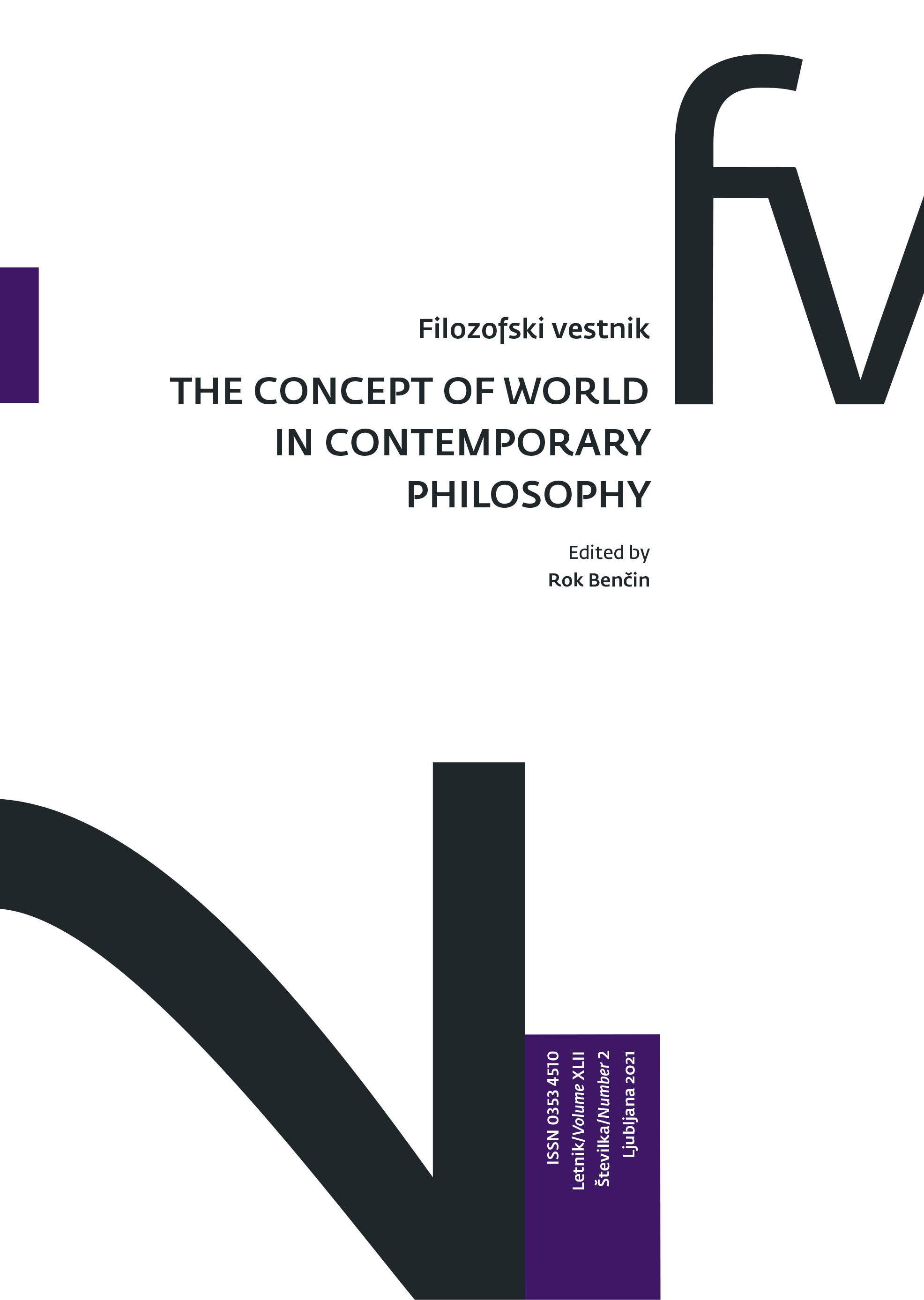O tem, kako je resnični svet končno postal virtualna resničnost
DOI:
https://doi.org/10.3986/fv.42.2.13Ključne besede:
virtualna realnost, informacija, vednost, metafizika, postajanjePovzetek
Kot pravi David J. Chalmers, je »virtualna resničnost vrsta prave resničnosti, virtualni objekti so pravi objekti, in kar se dogaja v virtualni resničnosti, je zares resnično«. V tem članku bom trdila, da lahko filozofsko hipotezo, po kateri morda živimo v simulaciji, razumemo kot zadnjo in najbolj nihilistično epizodo v seriji pripovedi o resničnih in navideznih svetovih, ki jo je orisal Nietzsche v Somraku malikov. Pokazala bom, da je Nietzschejevo napoved izginotja navideznega sveta dejansko izpolnil prav Chalmers. Njegovo teorijo moramo tako razumeti kot eno od mnogih zgodb, ki jih proizvedemo ljudje, da bi svet uredili v skladu z lastnimi cilji.
Prenosi
Literatura
Ayer, A. J., “Editor’s Introduction”, in A. J. Ayer (ed.), Logical Positivism, New York, Free Press, 1959, pp. 3–28.
Beane, Silas R., Zohreh Davoudi, and Martin J. Savage, “Constraints on the Universe as a Numerical Simulation”, The European Physical Journal A, 50 (148/2014), pp. 1–9.
Bostrom, Nick, “Are you living in a computer simulation?”, Philosophical Quarterly, 53 (211/2003), pp. 243–255.
Carnap, Rudolph, “Überwindung der Metaphysik durch Logische Analyse der Sprache”, Erkenntnis, 2 (1/1932), pp. 219–241.
Carnap, Rudolph, “The Elimination of Metaphysics through Logical Analysis of Language”, trans. A. Pap, in A. J. Ayer (ed.), Logical Positivism, New York, Free Press, 1959, pp. 60–81.
Chalmers, David J., “The Matrix as Metaphysics”, http://consc.net/papers/matrix.html, accessed 25 July 2021.
Chalmers, David J., Constructing the World, Oxford, Oxford University Press, 2012.
Chalmers, David J., “The Virtual and the Real”, Disputatio, 9 (46/2017), pp. 309–352.
Clark, Andy, Natural Born Cyborgs: Minds, Technology and the Future of Human Intelligence, Oxford, Oxford University Press, 2003.
Metzinger, Thomas K., “Why Is Virtual Reality Interesting for Philosophers?”, Frontiers in Robotics and AI, 5 (101/2018), doi: 10.3389/frobt.2018.00101, pp. 1–19.
Nietzsche, Friedrich, The Will to Power, trans. W. Kaufmann and R. J. Hollingdale, New York, Vintage Books, 1968.
Nietzsche, Friedrich, Twilight of the Idols, in The Antichrist, Ecce Homo, Twilight of the Idols, and Other Writings, trans. J. Norman, Cambridge, Cambridge University Press, 2005.
Plato, “The Allegory of the Cave”, trans. T. Sheehan, https://web.stanford.edu/class/ihum40/cave.pdf, accessed 25 July 2021.
Wheeler, John Archibald, “Information, Physics, Quantum: The Search for Links”, in W. H. Zurek (ed.), Complexity, Entropy, and the Physics of Information, Boston, Addison-Wesley, 1990, pp. 3–28.
Prenosi
Objavljeno
Verzije
- 2022-04-06 (2)
- 2021-12-31 (1)
Kako citirati
Številka
Rubrike
Licenca
Avtorske pravice (c) 2021 Avtorji

To delo je licencirano pod Creative Commons Priznanje avtorstva-Nekomercialno-Brez predelav 4.0 mednarodno licenco.
Avtorji jamčijo, da je delo njihova avtorska stvaritev, da v njem niso kršene avtorske pravice tretjih oseb ali kake druge pravice. V primeru zahtevkov tretjih oseb se avtorji zavezujejo, da bodo varovali interese založnika ter da bodo povrnili morebitno škodo.
Podrobneje v rubriki: Prispevki





